Let me get the review out of the way. Concrete Cowboy is a beautiful movie. It is a labour of love. You can see it from the care in which every shot is framed. You can hear it in the passionate performances of everyone on screen. You can feel it in the pride and joy of Black men and women galloping through the streets of Philadelphia. Yes, we’ve seen this sort of father and son story play out so many times, in so many ways, but it’s the setting that makes Concrete Cowboy stand out. It’s the setting that sent me down a veritable rabbit hole of research into the lives of the Black cowboys of the Fletcher Street Urban Riding Club.
Like you, my idea of the cowboy was rooted in what Hollywood fed me. They were trailblazing, sharpshooting, valiant, and white. American popular culture had once again whitewashed the fact that one in every four cowboys was black. They existed, they thrived, and they persisted. And now, over a century later, the stables on Fletcher Street continue to be the backbone of the Black urban cowboy community in Philadelphia. They are a safe haven for kids with nowhere to go. They are a bulwark against gentrification. They are the last vestiges of a fading culture.
I was not aware of the rich history of the Black cowboy so all of this was new to me. All of it was surprising. And much like Nomadland, Concrete Cowboy was as much an education as it was entertainment.
Brownstone Cowboys
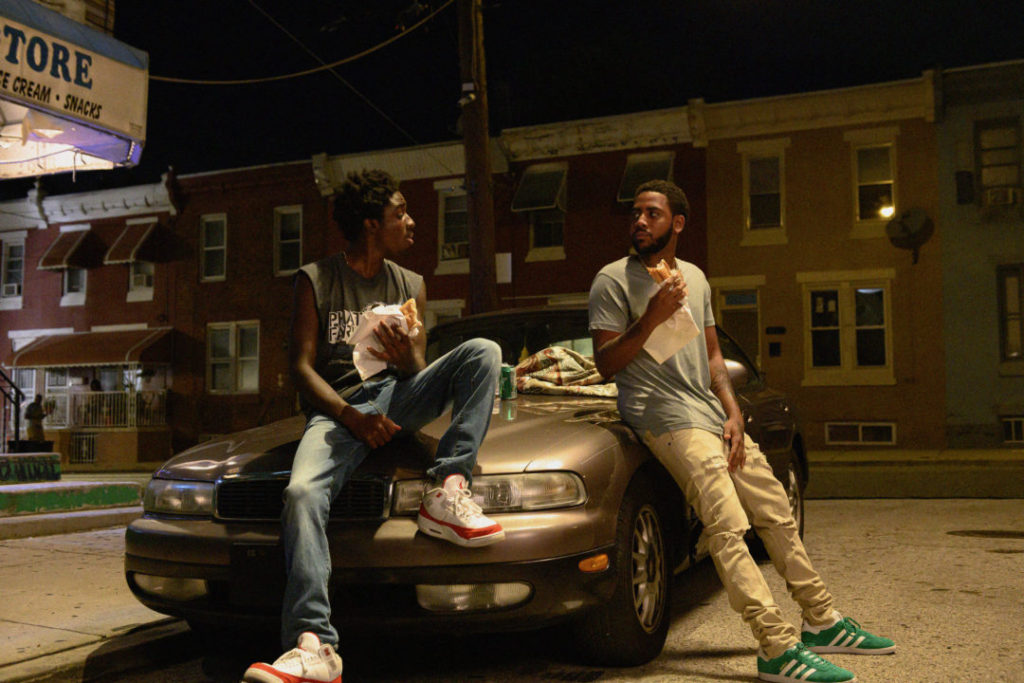
It is within this fascinating subculture that Ricky Staub sets his gloriously understated movie. It is where we meet the aimless and unsettled Cole (Stranger Things‘ Caleb McLaughlin), whose problems at school and at home are more than his poor mother can bear, and so she dumps him with his estranged father, Harp (a beautifully grizzled Idris Elba). The twist here being that Harp is an urban cowboy who remains entrenched in a culture that is anachronistic to our modern age. At least that’s what it feels like to Cole. And his anger at being dumped with a man he hardly knows is further compounded by the bizarreness of his new surroundings.
While Cole does find some respite with his smart talking, drug dealing cousin Smush (Jharrel Jerome), that relationship sets up a dangerous dilemma and threatens to send him down a path all too familiar to troubled Black men of his age. Cole has a decision to make. What kind of a man does he want to be? In which way lies salvation? Does he have to get out to grow up?
The Kid and the (Concrete) Cowboy
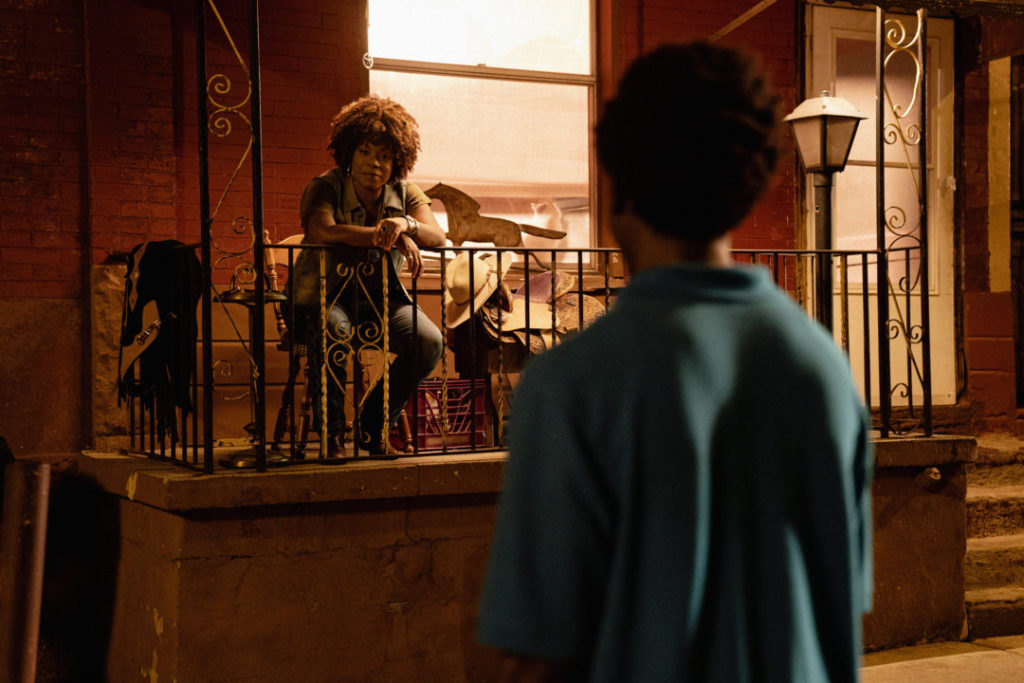
They say it takes a village to raise a child and that is exactly what happens on Fletcher Street, with every person that Cole encounters serving as a guide on his path towards manhood. This is a community that personifies what the cowboy Nat Love meant when he wrote: “A braver, truer set of men never lived than these wild sons of the plains whose home was in the saddle and their couch, mother earth, with the sky for a covering.” These are a people who aren’t just completely committed to a particular way of life but to each other as well. They immediately recognize Cole as one of their own and take it upon themselves to fix his wayward soul. They do it through their stories. They do it by way of tough love. Because, as more than one character is wont to remind the young Cole, “hard things come before good things.”
But Staub doesn’t fall into the trap of explaining the theme of his movie. He always lets his metaphors speak for themselves. Whether its Harp telling Cole the story of how he got his name, or an incredibly potent and powerful moment in which the young upstart has to tame a wild buck, each and every one of the set pieces in Concrete Cowboy are wonderfully underwritten. Staub has so much confidence in his actors’ ability to carry a moment that he allows his camera to linger, sometimes even in silence, thereby forcing an incredible emotional connection with the audience.
There are a few moments of clunky exposition by a campfire, but the stories told are so compelling that it’s easy to look past.
John Wayne Who?
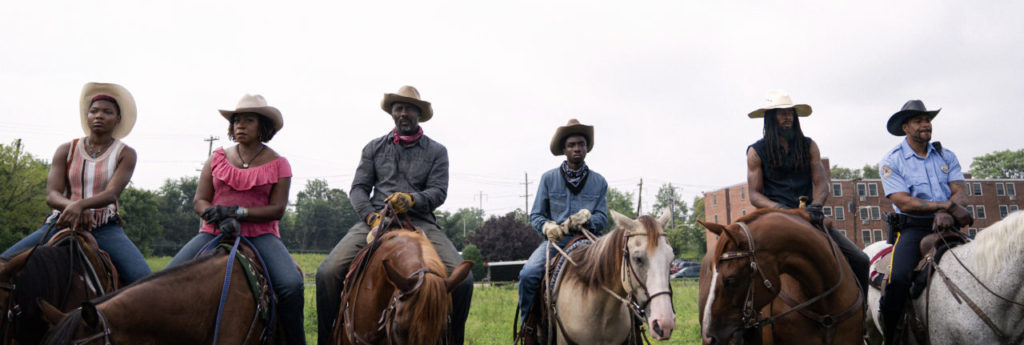
Besides being a chronicle of Cole’s coming of age, Concrete Cowboy is also the story of a group of people who are striving to hold on to their particular way of life. All culture is constantly being bombarded by outside forces looking to tear it down. Ideology. Fashion. Religion. Values. Mores. Holding on to something you believe in is hard. Even more so when no one realizes you even exist. God knows you don’t need to be an urban cowboy to be able to relate to that struggle.
I said it at the beginning of this review and I’ll say it again. Concrete Cowboy is a beautiful movie. It is a story of inner city life that’s wonderfully told. It is a meaningful look at a disappearing culture. It is a bold counter to decades of traditional Hollywood narratives that insisted that the greatest cowboys looked like John Wayne. They didn’t.

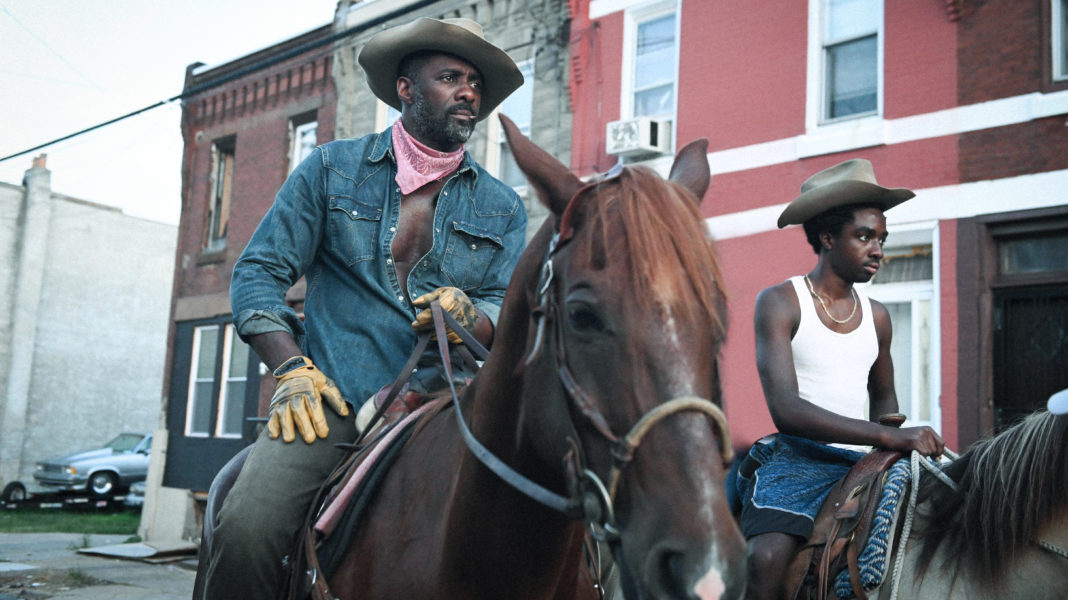


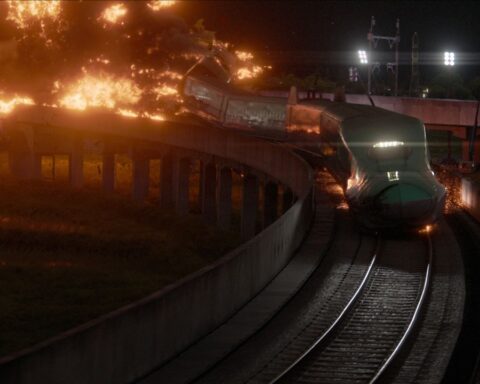
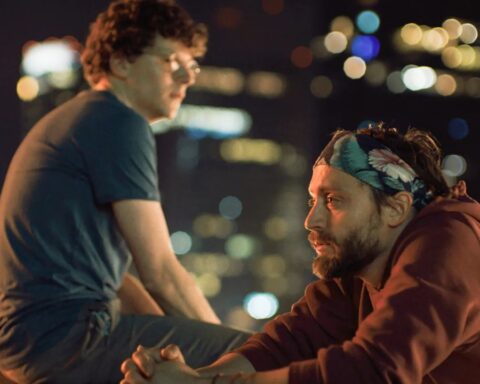
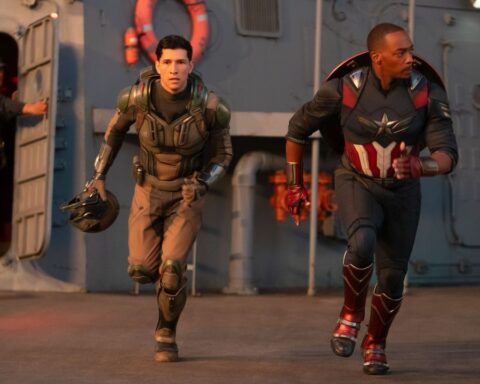
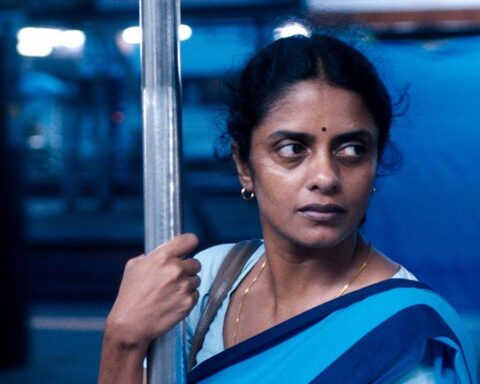

Follow Us